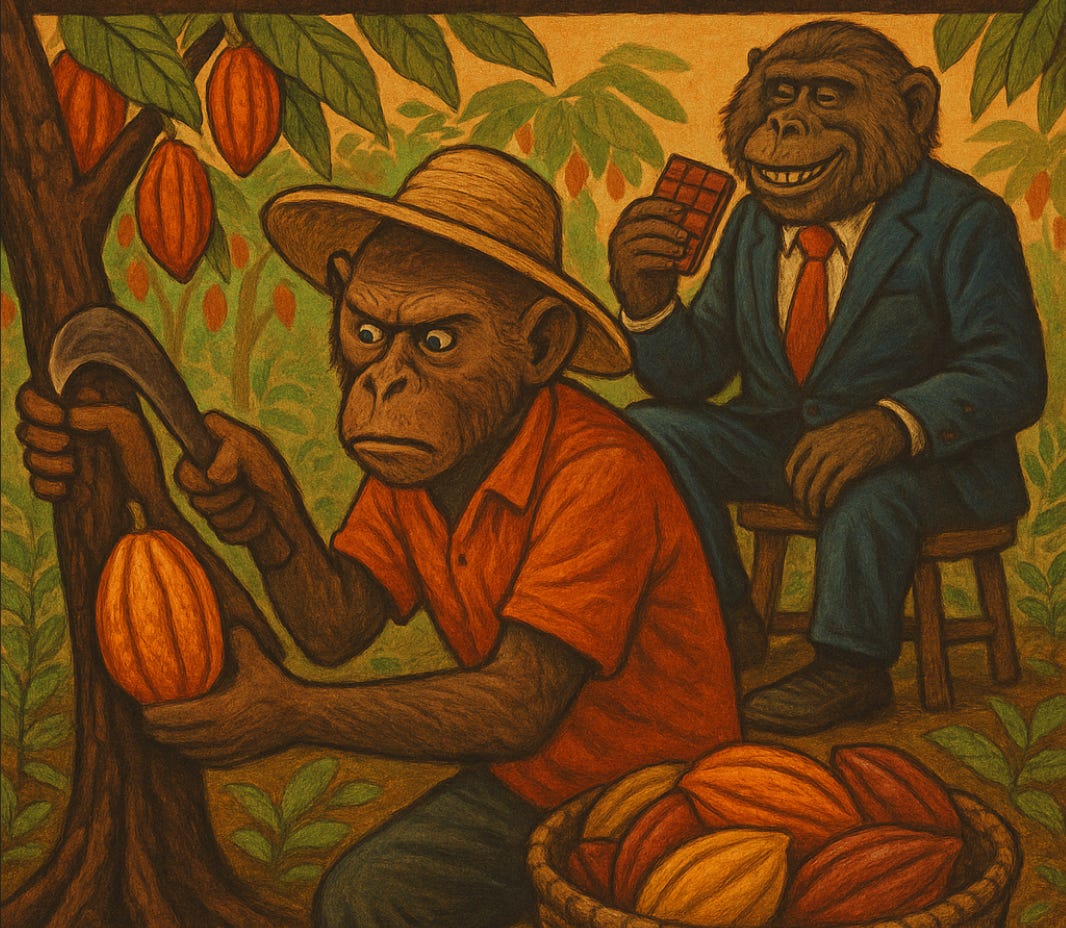Part 2: Monkey Dey Work, Baboon Dey Chop: The Myth of the Independent Cocoa Farmer
In the previous piece, I scrutinised a pension scheme that treats farmers like formal employees in one breath and like second-class citizens in the next. This contradiction led me to a blunt question: Are cocoa farmers really the independent “businessmen” that officials often claim, or are they more like exploited labourers in all but name? As we say in West Africa, “Monkey dey work, baboon dey chop.” The monkey (the farmer) does the work, the baboon (someone else) enjoys the fruits. It’s a colourful proverb that captures the reality I’ve witnessed growing up in a cocoa-farming family.
Let’s distil down this myth of the independent cocoa farmer. A true businessperson has a degree of control over pricing, outputs, and profits. They have capital to invest and the freedom to make key decisions. Does this describe my father or our neighbours? Hardly. When it comes to Control, my father cannot set the price for his cocoa; that price is fixed each season by COCOBOD or dictated by international markets. He hears the announcement on the radio and must take it or leave it. There’s no haggling and no alternative buyer in Ghana’s state-run cocoa marketing system. Also, talking about Capital, he operates on loans and advances. Many farmers borrow against the next harvest to pay for farming inputs or even basic needs. They are perpetually in debt to local buying clerks. How about Decision-making? Planting cocoa is often not a freely calculated business choice but a tradition and, frankly, a lack of alternatives. Once the trees are in the ground, you’re locked in – you can’t pivot to maize or tomatoes next week if cocoa prices fall. In summary, the “cocoa businessman” has none of the agility or power we associate with real entrepreneurs.
Now consider the other players in the value chain: the local buying clerk, the COCOBOD official, the international trader, and the chocolate manufacturer. The local buying clerk is somewhat better off than farmers, but not by much; they get a small commission per sack and also follow orders (and prices) set from above. The COCOBOD official is essentially a civil servant; he has a steady salary, benefits, and far more job security than farmers, courtesy of being part of the state machinery. The international trader (the company that exports beans or grinds them) operates like a true business, with access to financing, the ability to hedge prices, and the leverage to demand favourable contract terms. And the chocolate manufacturer? They are the ultimate business controllers – setting retail prices, building brands, and choosing how much to pay for ingredients. So, on the spectrum from powerless price-taker to powerful price-maker, where does the farmer stand? Unequivocally at the bottom.
Industry rhetoric often paints a different picture. I’ve heard off
Keep reading with a 7-day free trial
Subscribe to Cocoa Diaries Newsletter to keep reading this post and get 7 days of free access to the full post archives.




